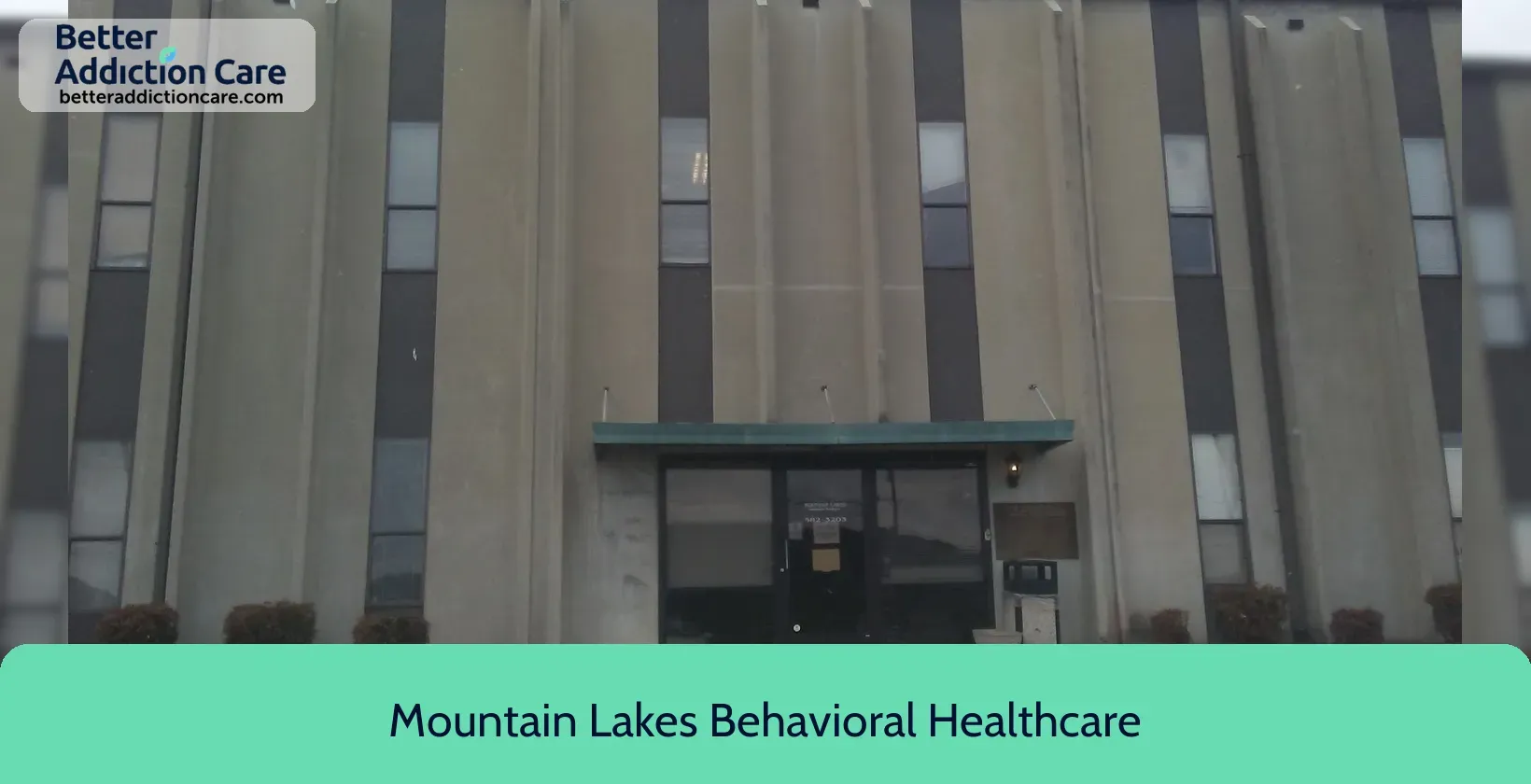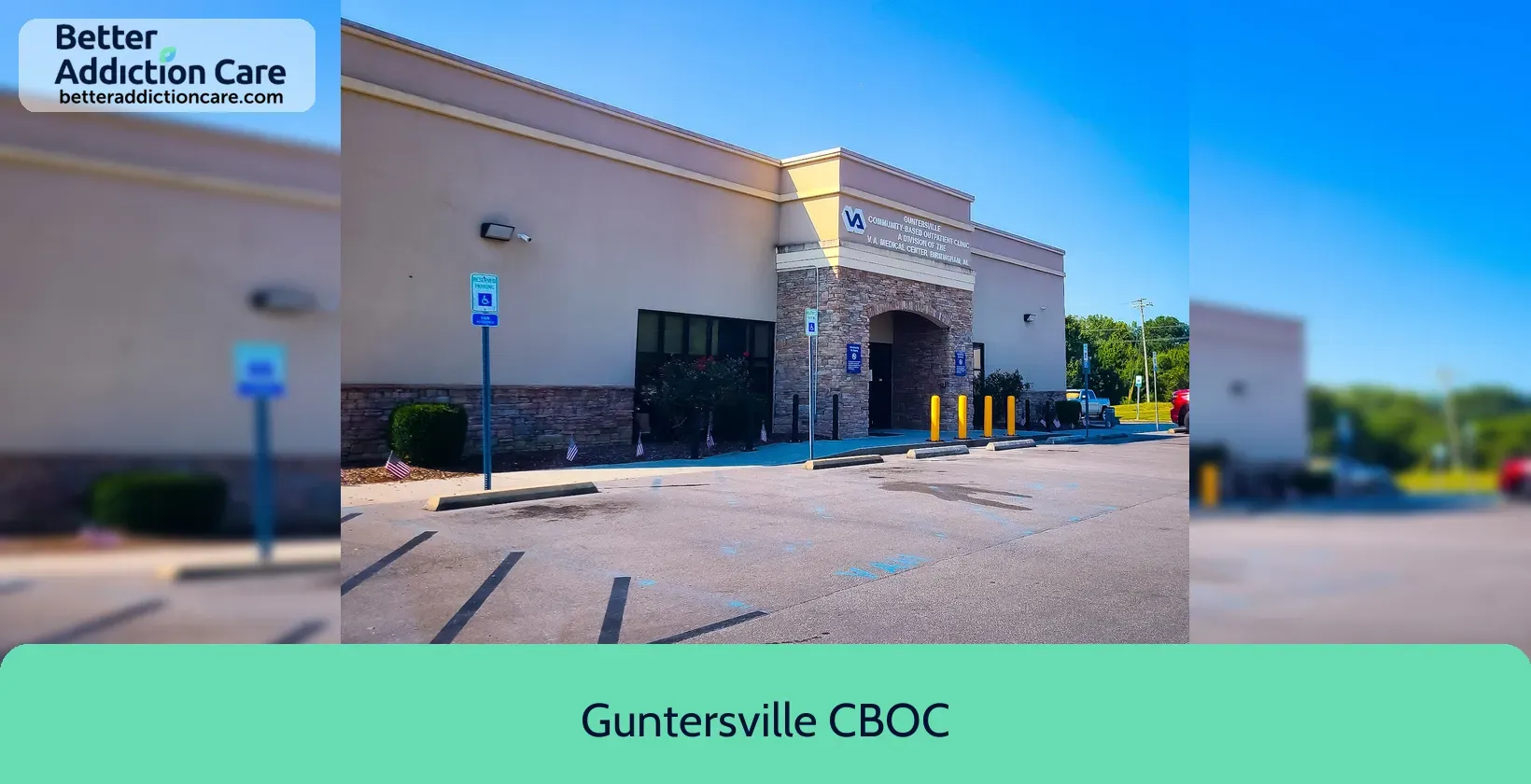Marshall Medical Centers North - Behavioral Health Unit

Overview
Marshall Medical Centers North - Behavioral Health Unit is a mental health treatment center for people seeking treatment near Marshall County. As part of their treatment modalities for recovery, Marshall Medical Centers North - Behavioral Health Unit provides couples/family therapy, group counseling, and cognitive behavioral therapy during treatment. Marshall Medical Centers North - Behavioral Health Unit is located in Guntersville, Alabama, accepting cash or self-payment for treatment.
Marshall Medical Centers North - Behavioral Health Unit at a Glance
Payment Options
- Cash or self-payment
- Medicaid
- Medicare
- State-financed health insurance plan other than Medicaid
- Private health insurance
Assessments
- Screening for tobacco use
- Comprehensive mental health assessment
- Comprehensive substance use assessment
Age Groups
- Seniors or older adults
- Young adults
- Adults
Ancillary Services
- Case management service
- Court-ordered outpatient treatment
- Diet and exercise counseling
- Education services
- Family psychoeducation
Highlights About Marshall Medical Centers North - Behavioral Health Unit
6.68/10
With an overall rating of 6.68/10, this facility has following balanced range of services. Alcohol Rehabilitation: 8.00/10, Drug Rehab and Detox: 6.00/10, Insurance and Payments: 6.00/10, Treatment Options: 6.73/10.-
Alcohol Rehabilitation 8.00
-
Treatment Options 6.73
-
Drug Rehab and Detox 6.00
-
Insurance and Payments 6.00
Treatment At Marshall Medical Centers North - Behavioral Health Unit
Treatment Conditions
- Mental health treatment
- Substance use treatment
- Co-occurring Disorders
Care Levels
- Hospital inpatient/24-hour hospital inpatient
Treatment Modalities
- Couples/family therapy
- Group counseling
- Cognitive behavioral therapy
- Integrated Mental and Substance Use Disorder treatment
- Activity therapy
Ancillary Services
Languages
- Sign language services for the deaf and hard of hearing
- Spanish
Special Programs
- Clients with co-occurring mental and substance use disorders
- Persons 18 and older with serious mental illness (SMI)
Get Help Now
Common Questions About Marshall Medical Centers North - Behavioral Health Unit
Contact Information
Other Facilities in Guntersville

7.03

6.85

7.19

6.99
Browse rehab centers near Guntersville and in other cities across Alabama
DISCLAIMER: The facility name, logo and brand are the property and registered trademarks of Cedar Lodge - A Program of MLBHC, and are being used for identification and informational purposes only. Use of these names, logos and brands shall not imply endorsement. BetterAddictionCare.com is not affiliated with or sponsored by Cedar Lodge - A Program of MLBHC.
